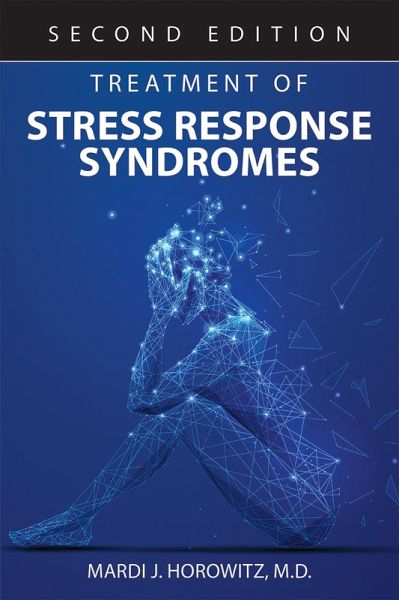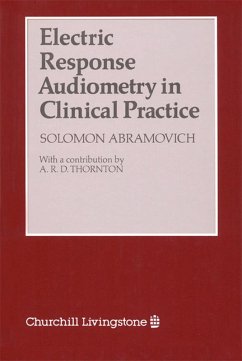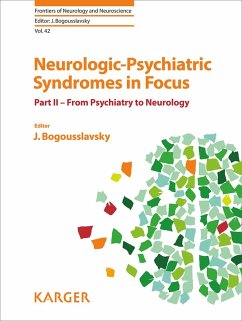
Treatment of Stress Response Syndromes (eBook, ePUB)

PAYBACK Punkte
10 °P sammeln!
Stress is a universal condition. However, severe stress related to loss, trauma, and/or terror necessitates an integrated approach, one that was pioneered nearly 20 years ago with the publication of Treatment of Stress Response Syndromes. This classic text has been updated and revised for our times, reflecting changes in DSM-5, which introduced a new category of diagnoses called trauma- and stressor-related disorders. This new edition updates treatment recommendations for these disorders and emphasizes formulation for determining appropriate therapeutic strategies. The author's method is asses...
Stress is a universal condition. However, severe stress related to loss, trauma, and/or terror necessitates an integrated approach, one that was pioneered nearly 20 years ago with the publication of Treatment of Stress Response Syndromes. This classic text has been updated and revised for our times, reflecting changes in DSM-5, which introduced a new category of diagnoses called trauma- and stressor-related disorders. This new edition updates treatment recommendations for these disorders and emphasizes formulation for determining appropriate therapeutic strategies. The author's method is assessment-based and does not compartmentalize its recommendations into treatment modalities such as cognitive-behavioral therapy, prolonged exposure, or cognitive processing therapy. Instead, the book takes an integrative and transtheoretical approach that emphasizes repeated assessments, resulting in treatment plans that are individualized, flexible, and more responsive to patient changes. Clinicians plan interventions based on the current state of mind of patients as they progress through the processing of traumatic events.
The new edition reflects evolution in the field, including the following: ¿ The cross-theoretical approach helps practitioners integrate previously acquired clinical concepts without limiting them to one treatment modality or school of thought, enhancing their ability to respond to patient needs.¿ Assessment can be used throughout all phases of treatment, which leads to the possibility of enhancing emotional control, advancing attachment models, and consolidating identity.¿ Because of the financial constraints of insurance coverage or military troop availability, many treatment guidelines for PTSD focus on brief therapy; however, this book stresses the need for therapies of the length required to provide full benefit to patients and to lead to personality growth.
In addition, the inclusion of illustrative cases anchors techniques to pragmatic actions, engaging readers and focusing them on the most critically important concepts. End-of-chapter summaries allow review of key principles, and pertinent tables and figures condense essential information for easy understanding and retrieval.
Of great practical value for psychotherapists and other mental health professionals working with patients experiencing the effects of serious life events, Treatment of Stress Response Syndromes is the definitive guide to the psychotherapy and management of acute stress and PTSD, combining clear and compelling case descriptions with the eloquent presentation of therapeutic technique.
The new edition reflects evolution in the field, including the following: ¿ The cross-theoretical approach helps practitioners integrate previously acquired clinical concepts without limiting them to one treatment modality or school of thought, enhancing their ability to respond to patient needs.¿ Assessment can be used throughout all phases of treatment, which leads to the possibility of enhancing emotional control, advancing attachment models, and consolidating identity.¿ Because of the financial constraints of insurance coverage or military troop availability, many treatment guidelines for PTSD focus on brief therapy; however, this book stresses the need for therapies of the length required to provide full benefit to patients and to lead to personality growth.
In addition, the inclusion of illustrative cases anchors techniques to pragmatic actions, engaging readers and focusing them on the most critically important concepts. End-of-chapter summaries allow review of key principles, and pertinent tables and figures condense essential information for easy understanding and retrieval.
Of great practical value for psychotherapists and other mental health professionals working with patients experiencing the effects of serious life events, Treatment of Stress Response Syndromes is the definitive guide to the psychotherapy and management of acute stress and PTSD, combining clear and compelling case descriptions with the eloquent presentation of therapeutic technique.
Dieser Download kann aus rechtlichen Gründen nur mit Rechnungsadresse in A, D ausgeliefert werden.













